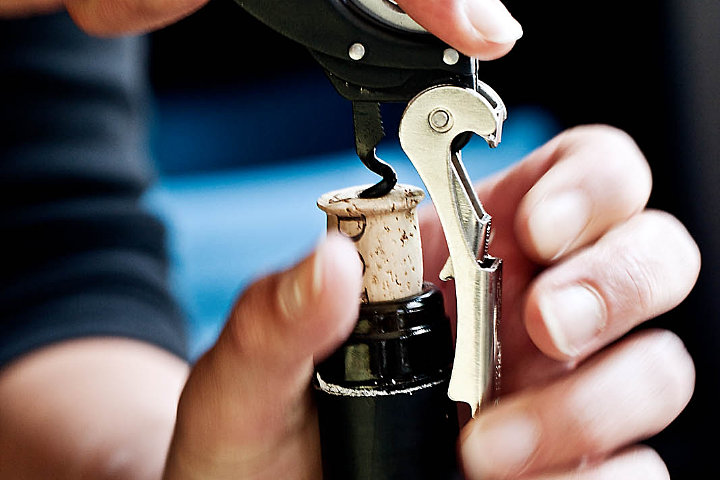You might believe that you’re making an extra sustainable selection when you choose bottle gathered plastic or lightweight aluminum, but the truth is that the typical cork stoppers are by far the most effective alternative.
The prevalence of alternative closures like aluminum screw caps or plastic “corks” is a misconception that developed in the ’80s, complying with two separate however equally crucial concerns.
The very first was the identification of cork taint in 1981. A “corked” wine takes on an aroma of damp dog or old socks– not extremely tasty.
The second major problem was a prevalent curse in the cork forests of Portugal in the ’90s, which caused farmers lowering infected trees. This problem was rapidly highlighted by the media and spun into an ecological calamity.
“The spin on that particular was, ‘See, they’re cutting the trees down just like they perform in the Amazonian rainforest! They’re simply raping these forests!'” recalls Cork Forest Conservation Partnership owner Patrick Spencer.
While the reality– that about one percent of trees were influenced as well as eliminated to avoid infecting the remainder of the woodlands– was much from this conflation, the damages were done, and also winemakers began to go with artificial closures.
But not only was the unsustainability of cork harvest blatantly overemphasized, yet significant advancements have actually likewise been made in determining corks affected with cork taint prior to they are made use of, minimizing cork taint from 5 to ten percent of containers to just one percent. The reasons for choosing synthetically shut wine appear minimal, specifically when you take into consideration truth sustainability of the all-natural cork harvest.
1. Cork is a Renewable Resource
Wine corks are made from the timber from the cork oak. Cork oak forests grow in 7 Mediterranean nations: Italy, Spain, France, Algeria, Morocco, Tunisia, as well as ultimately Portugal, which generates 60 percent of all gathered cork.
Unlike many various other kinds of timber, cork is actually completely sustainable to harvest. Due to the fact that cork is the only tree bark that does not consist of lengthwise fibers, it can be gotten rid of without slicing down the tree or harming it in any way. The cork tree brings back the bark every seven to twelve years, whereupon farmers can return as well as collect it again.
” It’s not like other plants which call for replenishing,” clarifies Peter Weber, Exec Supervisor of the Cork High-Quality Council. “It’s more like shearing a sheep.”
These trees are just reduced in the instance of blight or when they pass away normally– after between 100 and 200 years. In Portugal, where the trade is heavily regulated, it is illegal to reduce a living cork oak.
” People will say, ‘Gee, I was getting screw caps due to the fact that I believed I was conserving the cork woodland,” claims Spencer. “As well as it’s the type of a destructive thing to hear because it’s the reverse of what’s really occurring.”
2. Cork is Good for the Environment
Not just is all-natural cork sustainable to harvest, but keeping cork oak woodlands alive benefits the atmosphere.
The trees naturally expand in biodiverse woodlands: each tree sustains as much as 135 various plant types, according to the Globe Wild Animals Fund, as well as unusual animal varieties like the short-toed eagle or the Iberian lynx.
Spencer additionally notes that the Portuguese cork woodlands boast among the healthiest honeybee populations in the world.
“There is a great need not to use a lot of chemicals or chemicals in those forests since there is a truly fantastic equilibrium,” he says.
The existence of these cork woodlands likewise keep the North African deserts from expanding all the way to the Mediterranean. The woodlands have been highlighted as important environments by both the United Nations as well as the World Wild Animals Fund.
To top everything off, cork woodlands are likewise carbon sinks. Conservative price quotes claim that cork forests withdraw 10 million lots of CO2 each year (4.8 million tons in Portugal alone).
3. Cork Stoppers are Recyclable
Among the major points highlighted by the aluminum screw cap, the market is the recyclability of their product.
” They’ll constantly say, ‘aluminum is infinitely recyclable,'” clarifies Spencer. “Yet then the inquiry always is, ‘Yes, yet can those caps be reused?'”.
Spencer notes that generally, screw caps are not recycled in the United States, due to their little size. “They fall through the system as a particulate issue,” he states.
This means that to make more screw caps, the market needs to partake in energetic bauxite mining, one of the lots more damaging mining markets for the wellness of the planet and also for the health and wellness of individuals in the regions: well water is polluted up to five miles around bauxite mines, as well as respiratory system illness is widespread. To cover it off, turning bauxite to alum and alum into lightweight aluminum is among one of the most energy-consuming processes worldwide, eating one percent of all electricity utilized in the United States.
Making cork stoppers for white wine, on the various, another hand, is much less devastating to the world. A lot of modern-day wine cork factories make use of cork dirt from the handling plant to co-generate steam and in some cases electrical power. And also now, also small wine cork stoppers can be reused, many thanks to an initiative by the Cork Forest Conservation Alliance.
In 2008, the Alliance collaborated with Whole Foods to collect a glass of wine corks from people, stores, bottle stores, restaurants, and also vineyards. While recycled cork cannot be utilized to make wine stoppers, it can be damaged down right into granules and also made use of to make other products, including floor tiles, footpads for shoes, yoga floor coverings, as well as flooring ceramic tiles, among others.
The collaboration helped to make the program carbon neutral, a crucial element for the Alliance.
” If you begin shipping corks around the USA, after that as a matter of fact what you have actually done is a disservice to the environment,” states Spencer. “Yes, we’ve got the corks out of the landfill, however, if we now include much more carbon footprint to those corks, it becomes an environmental unfavorable instead of a positive.”.
Entire Foods Market’s preexisting internal circulation network was tapped in order to ship the corks in a carbon neutral means, hence negating this problem entirely.
” I would certainly never ever inform a winemaker how to close his/her red wine,” claims Spencer. “That’s a choice that they need to make based upon what’s finest for they are a glass of wine. Yet what I will say is please do not close your white wine with screw cap or plastic because you believe there’s a cork lack or they cut the trees down or somehow you’re being even more eco-sound, due to the fact that you’re not.”.


